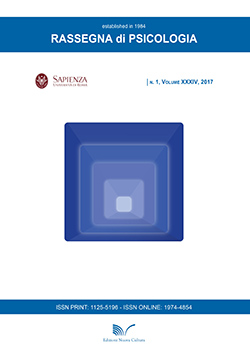The centrality of adaptation: primary emotions, motivational functioning and morality between neurosciences, evolutionary psychology and Control Mastery Theory
DOI:
https://doi.org/10.13133/1974-4854/16666Keywords:
Control-Mastery Theory, adaptation, motivational system, moralityAbstract
Control-Mastery Theory (CMT) is a cognitive-psychodynamic-relational theory of mental functioning, psychopathology and psychotherapy developed by Joseph Weiss (1993) and empirically studied by the San Francisco Psychotherapy Research Group (Weiss, Sampson, & The Mount Zion Psychotherapy Research Group, 1986). The central hypotheses of CMT are: the humans being's motivation to adapt to reality, their unconscious ability to execute higher mental functions and the importance of pro-social motivations and interpersonal guilt in normal and pathological mental functioning. The aim of this paper is to provide a review of the most important neuroscientific studies, along with both evolutionary and cognitive psychology researches that support these hypotheses. These studies showed how the evolution of species have been producing a series of behavioral systems, evolutionary based but “environmentally labile” which, overall, have promoted individuals and groups' survival and reproduction. To adapt to our own primary group, each of us builds a reliable set of beliefs about our surrounding world and about “moral rules” that govern relationships. Psychopathology can be seen as the expression of beliefs that had facilitated the adaptation of the child to a traumatic environment but have then revealed to be maladaptive because of the changing circumstances.Downloads
Published
2017-03-15
Issue
Section
Articles
License
Copyright (c) 2017 Emma De Luca, Cristina Mazza, Francesco Gazzillo

This work is licensed under a Creative Commons Attribution 4.0 International License.

